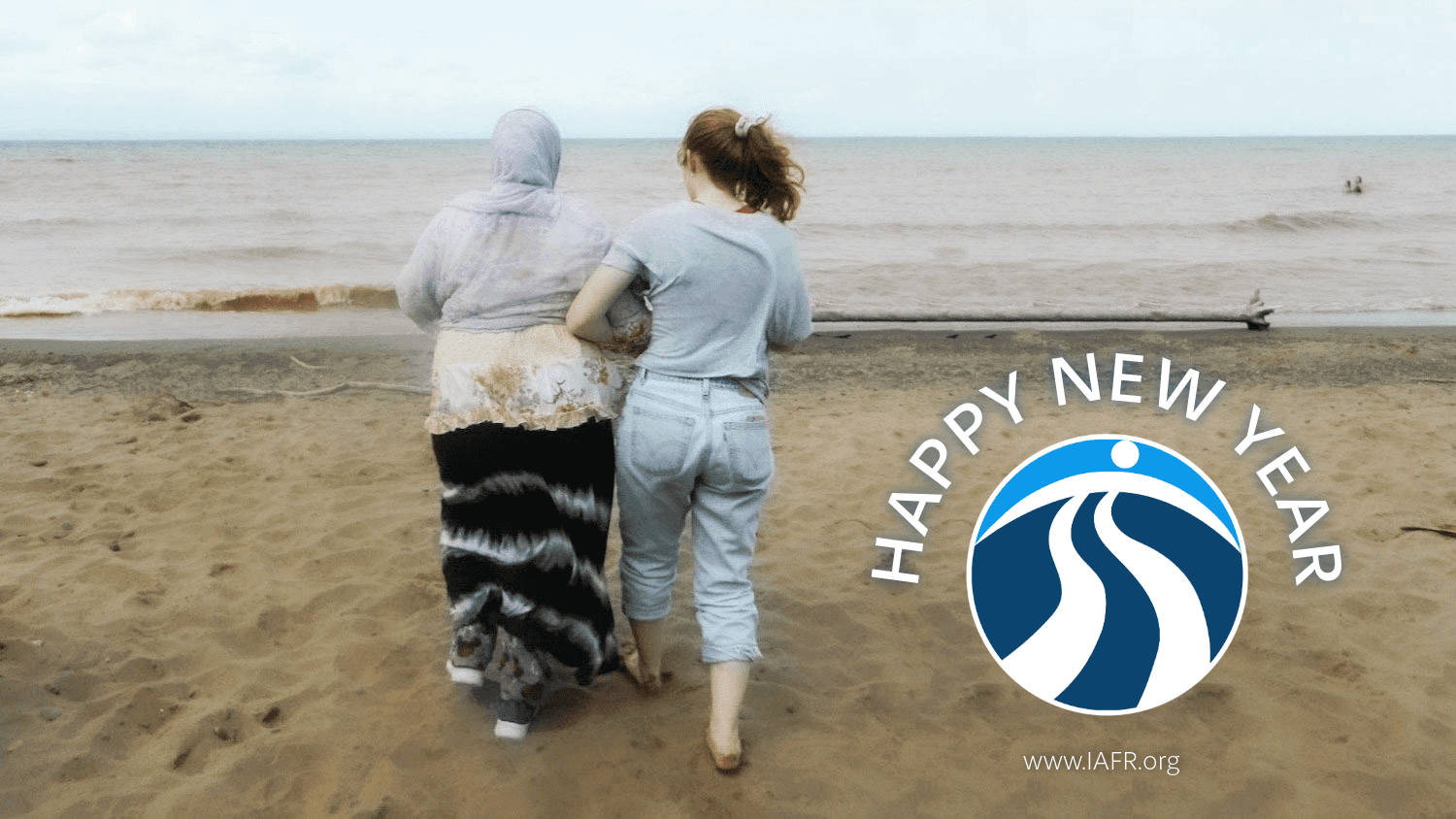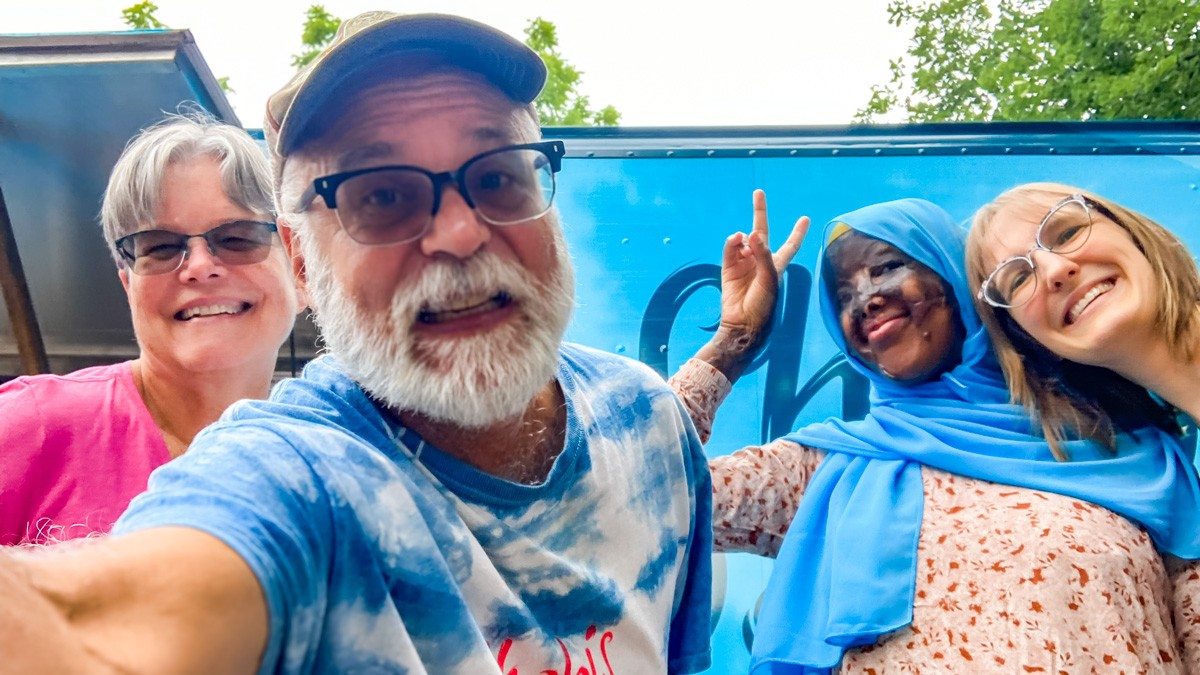World Refugee Day
Jun 20, 2022
- Tom Albinson

Today is World Refugee Day. It’s a day for us to remember the many people on the planet who have been forced to flee their homes due to war, persecution, and gross violations of human rights.
1 in 78 people alive today are forcibly displaced.
The United Nations reported a grim reality this month. There are over 100 million refugees, asylum seekers, and internally displaced people in the world. That means that 1 in every 78 people alive today has been forcibly displaced by hatred and violence.
How can we help?
It may surprise you that we can find helpful answers in the ancient Scriptures of the Bible.
Lessons from Boaz
Boaz is a great example of a person who actively welcomed a displaced person in his city (Bethlehem). We meet him in the book of Ruth.
The book tells the story about a woman named Naomi. She and her family migrated from Bethlehem to Moab during a famine. When her husband and two sons died, Naomi decided to return to Bethlehem. One of her son’s wives, Ruth, went with her, even though she was a Moabitess and not a Jew.
When Boaz saw Ruth, he invited her to glean from his fields. He did not look away, chase her away, or accuse her of stealing from his harvest. Nor did he do for her what she could do for herself.
Welcome, Protection, and Provision
He recognized her vulnerability and was an advocate for her safety. Boaz ordered the young men working his fields to not bother or harm Ruth. And he made sure that they shared their water with her.

Ruth asked him why he was looking out for her. Boaz told her how impressed he was with her hard work and care for Naomi. He affirmed her as a caring and hardworking person. And he let her know that she was welcome in Bethlehem and that she had found refuge. He even invited her to join him at his table.
This all took place in a culture that viewed foreign migrants like Ruth with prejudice and suspicion. Many people likely considered migrants to be opportunists and a threat to their culture and economy – perhaps even their national identity. They didn’t want Moabites like her to get too comfortable. Boaz challenged his culture and did what he could to create a sense of welcome and safety for Ruth.
Boaz challenged his own culture.
Note that Boaz did not view Ruth as helpless. He did not set up a food distribution system of handouts. Rather, he gave her access to the harvest so she could meet her own needs. The vast majority of refugees and asylum seekers do not want handouts. They want work that enables them to meet their needs. Although handouts can help, they often dehumanize people in the process.
Dependency on handouts can dehumanize people
This is one of the great pains our friends stuck in refugee camps experience. They are raising their families in a forced dependency on handouts from humanitarian agencies for food, water, shelter, and even firewood. Many people I know have lived like this for decades.
Affirm dignity
I will never forget when a Somali friend told me how dehumanizing it is to be dependent on foreign aid. He said that every morning he has to remind himself that he is human.
Whenever possible, we should follow the example of Boaz and affirm the dignity of refugees while advocating for their right to work and provide for themselves.
Recap: What can we do to help?
There is much more we could learn from the example of Boaz, but we will let this suffice for now. Like Boaz, we can...
- Welcome refugees and asylum seekers to our cities
- Affirm their dignity
- Invite them to our tables
- Help them find access to meaningful work
- Identify their vulnerabilities and create safe spaces for them in society
- And challenge our own culture to do the same
Boaz didn't solve the problems of all the displaced people in the world. But he did help one who crossed his path.
Little did he know that this poor and vulnerable migrant widow would one day become the great grandmother of King David.
Other Featured Posts

Reciprocity: experiencing God's blessings together
Feb 19, 2026

An empty seat
Feb 4, 2026

Statement Concerning ICE in Minnesota
Jan 23, 2026

Harvest Season at Hope Community
Jan 15, 2026

Happy New Year!
Dec 31, 2025

Merry Christmas from IAFR
Dec 23, 2025

Love Made Me Forget My Scars
Dec 17, 2025

Hope Has a Name
Dec 10, 2025


